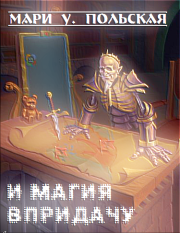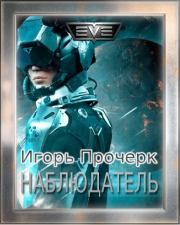Cynthia Felice - Track of a legend
 | Название: | Track of a legend |
Автор: | Cynthia Felice | |
Жанр: | Научная Фантастика | |
Изадано в серии: | неизвестно | |
Издательство: | неизвестно | |
Год издания: | - | |
ISBN: | неизвестно | |
Отзывы: | Комментировать | |
Рейтинг: | ||
Поделись книгой с друзьями! Помощь сайту: донат на оплату сервера | ||
Краткое содержание книги "Track of a legend"
Введите сюда краткую аннотацию
Читаем онлайн "Track of a legend". Главная страница.
- 1
- 2
- 3
- . . .
- последняя (4) »
Cynthia Felice Track of a legend
Christmas started at school right after we returned from Thanksgiving holiday and took down the paper turkeys and pilgrims from the windows.The teacher sang “Jingle bells, Santa smells, Rudolph laid an egg” ail the while that he was supposed to be reprogramming my December reading assignment, and the computer printed out MERRY CHRISTMAS every time
I matched a vowel sound with the right word, and BAH, HUMBUG whenever
I was wrong. And it said BAH, HUMBUG a lot and didn’t light up the observation board. We used the gold math beads as garlands for the tree because we ate most of the popcorn, and paper chains were for kindergarteners who weren’t smart enough to scheme to get out of lessons.
Still, we had to listen to civic cassettes so that we would know it was also the anniversary of the Christmas Treaty of ‘55 that brought peace to all the world again. And to top it off, on the very last day before Christmas our teacher improvised a lecture about how whole stations full of people had nowhere to go but back to Earth, their way of life taken from them by the stroke of a pen. The cassettes didn’t mention that part. I didn’t think Earth was such a bad place to go, but I didn’t speak up because I was eager to cut out prancing, round-humped reindeer with great racks of antlers from colored construction paper. I put glitter that was supposed to be used on the bells on the antlers and hooves, and the racks were so heavy that my reindeer’s heads tore off when I hung them up. After lunch teacher said he didn’t know why we were sitting around school on Christmas Eve day when it was snowing, and he told us to go build snowmen, and he swept up the scraps of construction paper and celluloid and glitter alone while we put our Christmas stars in plastic sacks and tucked them into our jackets so that our hands would be free to make snowballs.
My best friend, Timothy, and I took some of the gingerbread cookies sprinkled with red sugar to leave in the woods for Big foot, then ran out the door and got pelted with snowballs by upper-graders who must have sneaked out earlier.
Timothy and I ran over the new-fallen snow in the playground to duck behind the farthest fence, where we scooped up snow and fired back. We were evenly matched for a while, snowballs flying thick and heavy. Then the little kids came out of school and betrayed us by striking our flanks.
“The little brats,” Timothy muttered, throwing down a slushball. I suspect he was less upset that the little ones had decided to team up with the big kids than that one of them was crying and making his way to the school building, and someone was sure to come checking to see who was making ice balls. “Come on,” he said, still feigning disgust. “Let’s go build our own fort and get ready for Bigfoot.”
The creature of yore was not so legendary in our parts, where we kids often found footprints in mud after rainstorms and in the snows of winter, especially in the woods surrounding the school. The grown-ups just shook their heads and said someone was playing a joke, that nobody wore shoes that big and that a real Bigfoot would be barefoot, like in the video show.
But no one really knew what Bigfoot’s toes looked like. My dad said even the video maker just guessed. We kids figured Bigfoot’s foot was full of matted hair or lumpy skin that left those strange-looking ridges. And we just knew that Bigfoot came out in the dark storms looking for a stray child to eat, and that gingerbread cookies merely whetted the creature’s appetite.
Leaving the school behind us, we made our way toward the greenway along the hoverpath, where the freighters sprayed us with a blizzard of snow when they whooshed by.
“Look here,” Timothy shouted, tugging at something’ he’d stepped on in the snow. Both of us scratched at the snow and pulled until we freed a great piece of cardboard. It was frozen stiff.
“Let’s go to the hill,” I said.
Dragging our cardboard sled behind us, we trudged along Bigfoot’s own trail through the woods. You could tell the creature had passed here from time to time because branches were broken back wider than any kid could cause, and the path circled the hill outside a wire-and-picket fence, and the gate was always locked to keep Bigfoot and everyone else out.
The hill was treeless, acres of grass manicured by robots with great rotary blades in summer and smooth as a cue ball in winter. Perfect for sledding.
The only trouble with the hill was that Timothy’s aunt lived in the shiny tin-can-lying-on-its-side house at the top. I knew she was weird because Timothy said she never came outside or went anywhere, and my parents would shake their heads when they talked about her. But we had the cardboard sled in our hands, and he was pulling strongly; so I guess he didn’t care about his weird aunt.
The fence might keep clumsy Bigfoot out but delayed us only a few seconds when we snagged a ragged edge of the cardboard on it and had to stop to free it. Then we climbed what seemed to be fourteen thousand one hundred ten meters of elevation to a place a little below the odd house, where we finally rested, breathing as hard as ancient warriors who’d just dragged their elephant up the Alps.
Timothy’s aunt’s house whirred and clicked, and I looked up. There were no windows, but it had a thousand eyes hidden in the silver rivets that held the metal skin over tungsten bones.
In the white snow it looked desolate, save for a trickle of smoke.
“Hey, your aunt’s house is on fire,” I said. Timothy gave me a look that always made me feel stupid. “Her heat exchanger’s broken. She’s burning gas,” he said. “I know because she asked my dad to get her a new one before Christmas.”
“Does she come to your house for Christmas?”
“Nah. Sometimes she comes video, just like she used to when she lived up there.” He gestured skyward, where snowflakes were crystallizing and falling on us, but I knew he meant higher, one of the space stations or orbiting cities. “It’s better now because there’s no delay when we talk. It’s like she was in Portland or something.”
“What’s she like?” I said, suddenly wondering about this peculiar person who had been a fixture in my community since I was little, yet whom I’d never seen.
Timothy shrugged. “Like an aunt. always wanting to know if I ate my peas.” Warrior Timothy was patting the cardboard elephant sled, making ready to resume our journey in the Alps.
“Why doesn’t she come out of there?”
“My dad says she’s got a complex or something from when she lived up there.” He gestured skyward again.
“What’s a complex?”
For a moment Timothy looked blank, then he said, “It’s like what Joan-John and Lester-Linda Johnson have.”
“You mean she goes to the clinic and comes back something else?” I said, wondering if his aunt used to be his uncle.
“I mean she doesn’t go anywhere.”
“But like to the consumer showcases down in the mall and the restaurant. She goes there, doesn’t she?”
“Nope. Last year when her mux cable got cut and her video wasn’t working she practically starved to death.”
“But why? Is she crippled or something?” The teacher had said he knew a spacer who spent most of his time in a swimming pool, and when he did come out he had to use a wheelchair because he was too old to get used to gravity again.
“No, she’s not crippled.”
“What’s she --">
- 1
- 2
- 3
- . . .
- последняя (4) »
Книги схожие с «Track of a legend» по жанру, серии, автору или названию:
 |
| Эрик Фрэнк Рассел - Оса (др. перевод) Жанр: Научная Фантастика Год издания: 2001 |





